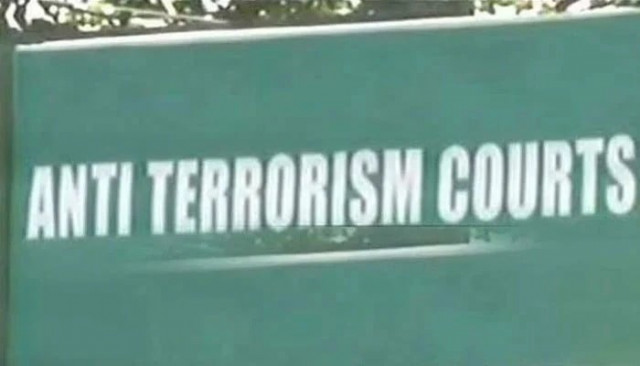Rawalpindi:
The hearing of the GHQ attack affair of May 9 took a spectacular turn on Friday while a key witness of the accusation went abroad, the defense lawyers boycotted the procedure and the anti -terrorist court (ATC) continued by registering the declarations of two other witnesses.
The procedure began with revelations according to which the Tasadduq sub-inspector, considered as a witness to the key government, had left the country with his family after only making a partial declaration. Investigators were forced to convene another short -term witness to maintain the moving trial.
The controversy has deepened when the founder of PTI, Imran Khan, who had received the order to appear via the video link, was rather connected via WhatsApp. It appeared for just over three minutes before cutting the connection. Imran Khan and his legal team both denounced the process, calling the unconstitutional WhatsApp arrangement and boycotting the trial.
“Either invoke me in person, or conducted a lawsuit in the appropriate prison in the presence of everyone,” Khan told his lawyers. He argued that the video link procedure deprived him of a fair consultation with his defense team.
Following the boycott, ATC judge Amjad Ali Shah authorized the request for the accusation to continue without the defense and recorded the declarations of the Manzoor Shehzad and Saleem Qurereshi sub-games.
The two witnesses presented 13 USB discs containing 40 video clips which would have been linked to Imran, as well as video surveillance cameras installed in Benazir Bhutto Road, Mall Road, Liaquat Bagh and the adjacent areas.
They also submitted press cuts from national newspapers and videos of PTI leaders, notably Khawaja Khokhar, Shehryar Afridi, Umar Tanveer, Sadaqat Abbasi and Sikandar Mirza.
The defense protested earlier in the day, arguing that the trial via WhatsApp did not even failed an official video link. “This is not a video link, this is a WhatsApp call – it undermines the right to an equitable trial guaranteed under article 10 of the Constitution,” said lawyer Malik to the court.
He argued that without the capacity to consult his client in private, lawyers could not defend him effectively. Prosecutors replied that the video link arrangement was legal under the modifications to the Code of Criminal Procedure and the provisions of the anti -terrorist law.
They argued that the transfer of the place of trial was an executive decision of the Punjab government and could not be disputed in the ATC.
Judge Shah rejected the defense objections and postponed the case until September 23, convening 10 additional witnesses for the next hearing. He also rejected a request to invoke Imran Khan in person.
The hearing took place under extraordinary security, with 700 police officers deployed around the ATC. The roads outside the court were sealed with barbed wire, media vehicles were restricted and many lawyers were refused entry.




